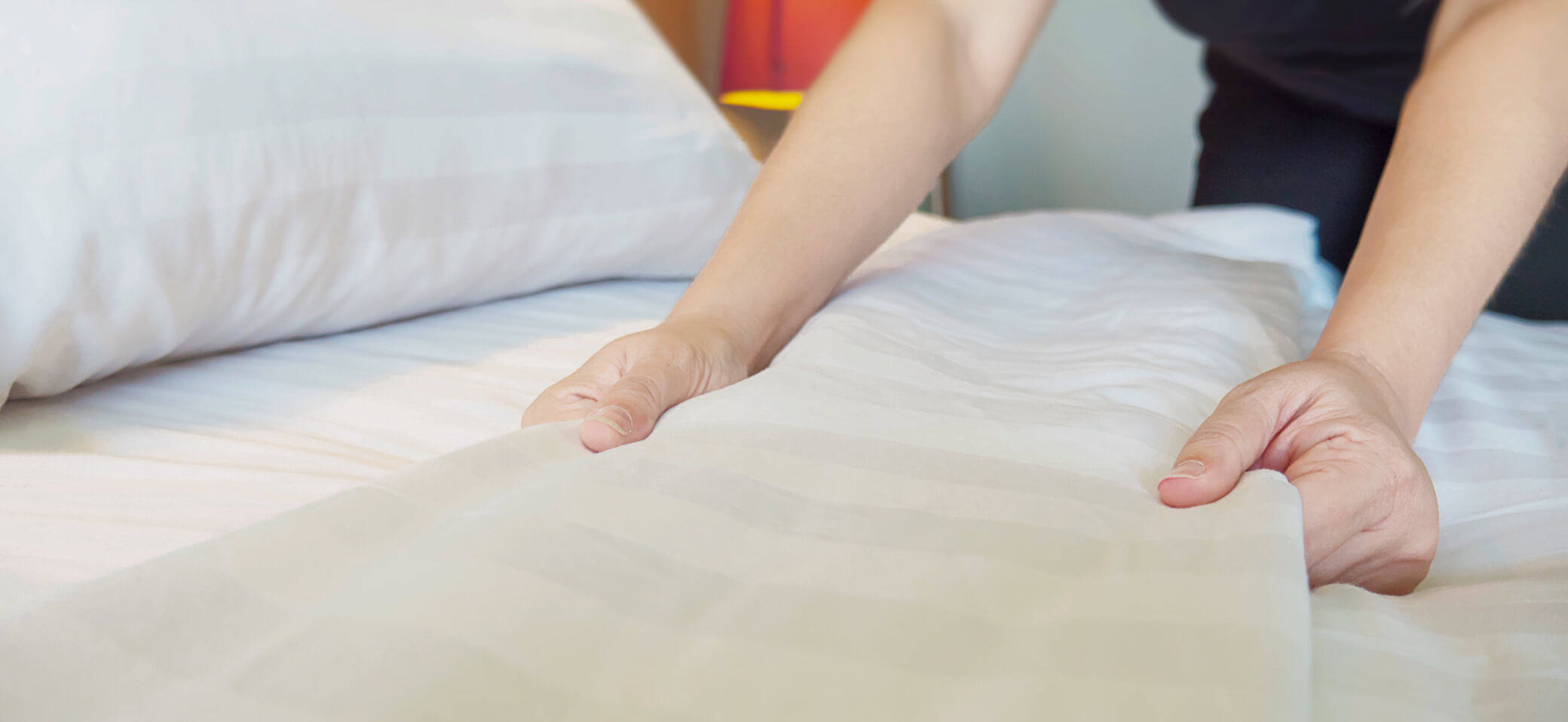So, how often to change bed sheets?
Singapore is a humid country with a tropical climate. The high levels of humidity in Singapore can affect how often bed sheets need to be changed. However, there are a few factors to consider when determining the frequency of bed sheet changes:
-
Perspiration:
If you perspire heavily at night, you may need to change your bed sheets more frequently to prevent the build-up of bacteria and other contaminants.
-
Skin sensitivity:
If you have sensitive skin, you may need to change your bed sheets more frequently to prevent irritation.
-
Personal preferences:
Some people prefer to change their bed sheets more frequently, such as every week, due to personal preferences or habits.
Will eating on your bed causes your bed sheets to be dirtier?

Eating in bed can cause your bed sheets to become dirty and can increase the risk of spills, stains, and other contaminants. When you eat in bed, crumbs and food particles can fall onto your bedding, which can attract pests such as ants and can create an unsanitary environment.
In addition, if you spill food or drinks on your bed sheets, it can be difficult to remove the stains and it may require extra effort to keep your bed sheets clean and fresh.
While it’s not necessarily a bad thing to eat in bed every once in a while, it’s a good idea to be mindful of the potential risks and take steps to minimize the chances of spills and stains. For example, you can use a tray or place a towel or napkin on your lap to help protect your bed sheets.
Recommendations on how often to change bed sheets in Singapore
The general recommendation for how often to change bed sheets in Singapore is every one to two weeks. This frequency is based on several factors, including the hot and humid climate in Singapore, the potential for perspiration to cause the build-up of bacteria and other contaminants on bed sheets, and personal preferences.
It’s important to note that these are general guidelines, and the frequency of how often to change bed sheets may vary depending on your individual circumstances. If you sweat heavily at night or have sensitive skin, you may need to change your bed sheets more frequently to prevent irritation or the build-up of contaminants.
Similarly, if you prefer to change your bed sheets more frequently due to personal habits or preferences, you may choose to do so.
Here are some tips for maintaining clean bed sheets:

-
Use a mattress protector:
A mattress protector can help protect your bed sheets from spills, stains, and other contaminants, making it easier to keep them clean and fresh.
-
Wash pillowcases and blankets more frequently:
Pillowcases and blankets can accumulate sweat, oils, and other contaminants, so it’s a good idea to wash them more frequently than bed sheets.
-
Wash and change other bedding items regularly:
In addition to bed sheets, it’s important to regularly wash and change other bedding items such as comforters and duvets.
-
Use a gentle detergent:
Choose a gentle detergent when washing your bed sheets to help protect the fabric and prolong their lifespan.
-
Use a lower heat setting on the dryer:
Using a lower heat setting on the dryer can help prevent damage to the fabric and keep your bed sheets looking fresh and new.
-
Use a linen service:
If you don’t have the time or resources to wash your bed sheets and other bedding items regularly, you may want to consider using a linen service to have them professionally cleaned and changed on a regular basis.
By following these tips, you can help maintain clean and fresh bed sheets and ensure a comfortable sleep environment.
Conclusion

These are just basic steps to maintain a clean and comfortable environment for you and your loved ones. However, after doing all these methods and you are still suffering from skin allergies and restless nights, it is advisable to engage a professional mattress cleaner to get your mattresses cleaned if the problem persists.












